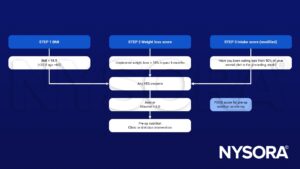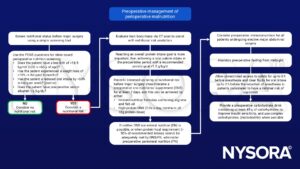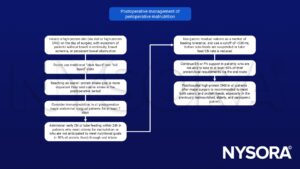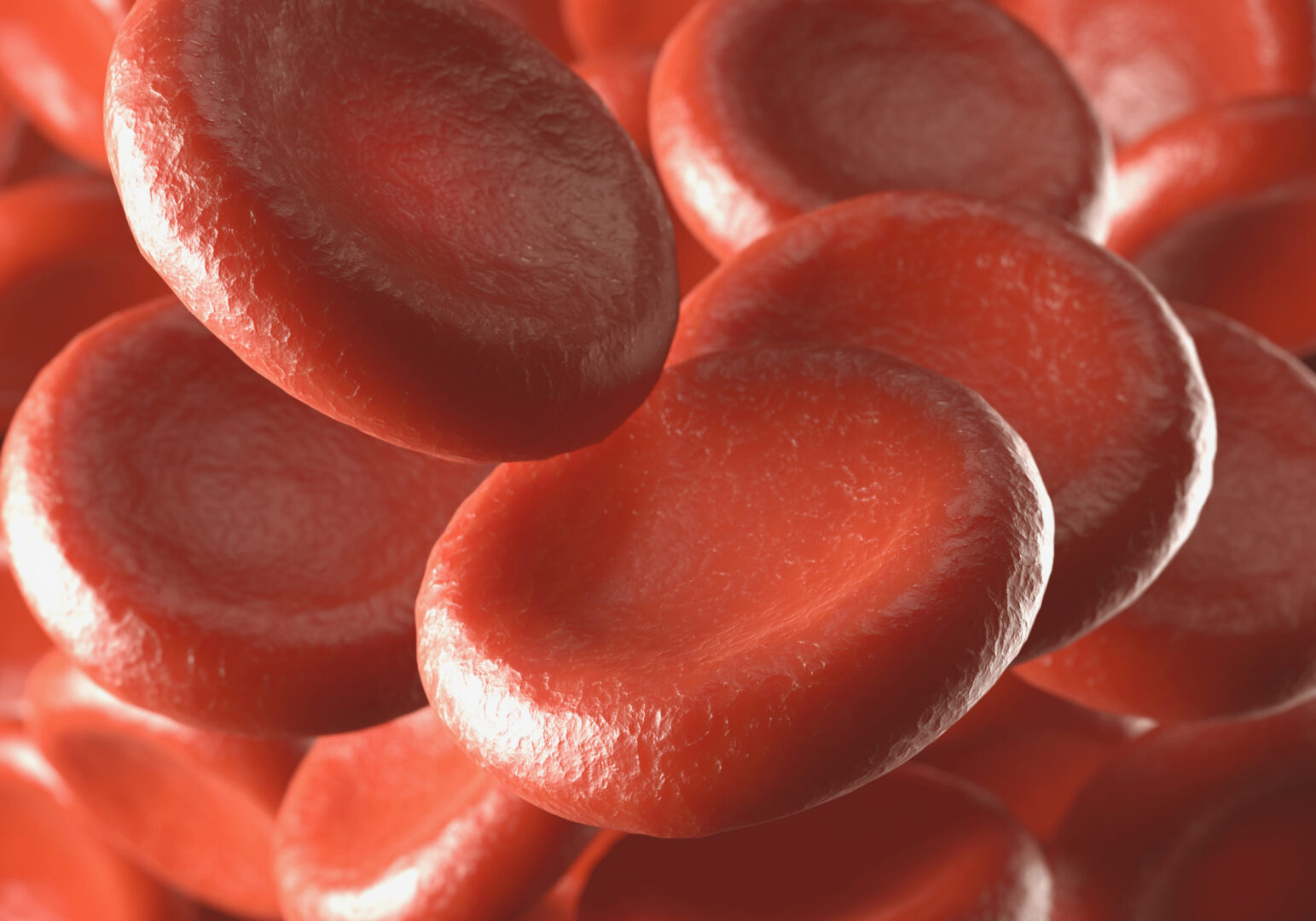Learning objectives
- Consequences of perioperative malnutrition
- Recommendations to avoid perioperative malnutrition
Definition and mechanisms
- Malnutrition in the perioperative period is associated with increased morbidity, mortality, length-of-stay, and healthcare costs
- Is often a direct result of an underlying disease process
- The importance of perioperative nutrition optimization continues to be poorly appreciated
- The prevalence of preoperative malnutrition is up to 65% in patients undergoing surgery for cancer or gastrointestinal disease
- However, perioperative malnutrition has proven to be challenging to define, diagnose, and treat
- Patients are at risk of cancer cachexia, muscle protein depletion, poor wound healing, and systemic inflammation
- Appropriate perioperative nutritional therapy improves perioperative outcomes in gastrointestinal/oncologic surgery specifically
- Preventive, rather than ‘reactive’ boosting, of nutritional stores and general metabolic reserve can protect against the catabolic stress response of surgery
- Nutritional optimization should start as early as feasible in the perioperative process
- Enhanced recovery after surgery (ERAS) pathways recommend the use of clear fluid carbohydrate drinks in the immediate preoperative period to decrease the incidence of insulin resistance and postoperative hyperglycemia
- Wishmeyer et al. 2018 on behalf of the American Society for Enhanced Recovery and Perioperative Quality Initiative 2 (POQI-2) pointed out the importance of nutritional screening and therapy within a surgically enhanced recovery pathway

Summary of current challenges and known benefits of perioperative nutrition interventions. Figure adapted from Wischmeyer et al. 2018.
Perioperative Nutrition Screening Score (PONS)
- To determine high-risk nutritional groups requiring referral to nutritionists for initiation or oral nutritional supplementation

Management


Suggested reading
- Matthews, L.S., Wootton, S.A., Davies, S.J., Levett, D.Z.H., 2021. Screening, assessment and management of perioperative malnutrition: a survey of UK practice. Perioperative Medicine 10.
- Schonborn, J.L., Anderson, H., 2019. Perioperative medicine: a changing model of care. BJA Education 19, 27–33.
- Williams, D.G.A., Molinger, J., Wischmeyer, P.E., 2019. The malnourished surgery patient. Current Opinion in Anaesthesiology 32, 405–411.
- Wischmeyer, P.E., Carli, F., Evans, D.C., Guilbert, S., Kozar, R., Pryor, A., Thiele, R.H., Everett, S., Grocott, M., Gan, T.J., Shaw, A.D., Thacker, J.K.M., Miller, T.E., Hedrick, T.L., Mcevoy, M.D., Mythen, M.G., Bergamaschi, R., Gupta, R., Holubar, S.D., Senagore, A.J., Abola, R.E., Bennett-Guerrero, E., Kent, M.L., Feldman, L.S., Fiore, J.F., 2018. American Society for Enhanced Recovery and Perioperative Quality Initiative Joint Consensus Statement on Nutrition Screening and Therapy Within a Surgical Enhanced Recovery Pathway. Anesthesia & Analgesia 126, 1883–1895.
We would love to hear from you. If you should detect any errors, email us customerservice@nysora.com







